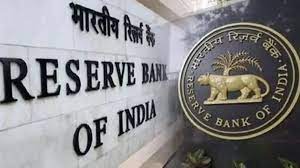


In recent developments within the financial sector of India, the Reserve Bank of India (RBI) has set the stage for a meticulous examination of regulatory compliance by two prominent Non-Banking Finance Companies (NBFCs) – IIFL Finance Ltd and JM Financial Products Ltd (JMFPL). This move comes in response to glaring irregularities observed in their operations, prompting the RBI to take swift action to ensure adherence to regulatory standards. Let's delve deeper into these developments and understand their implications.
In a bid to uphold financial integrity, the RBI initiated a special audit process, signaling its intent to address regulatory breaches within IIFL Finance Ltd and JM Financial Products Ltd. The central bank's decision stemmed from concerns raised regarding non-compliance with established regulatory guidelines, necessitating a thorough investigation into the affairs of these NBFCs.
The RBI's call for a special audit has led to the issuance of tenders inviting audit firms empanelled by the Securities and Exchange Board of India (SEBI) to participate in the process. The scope of this audit encompasses a forensic examination, aiming to unearth any irregularities or deviations from regulatory norms within the operations of IIFL Finance Ltd and JMFPL. The stringent selection process for auditors underscores the gravity of the situation, with emphasis placed on expertise and impartiality.
The decision to subject IIFL Finance Ltd and JM Financial Products Ltd to regulatory scrutiny follows prior actions taken by the RBI in response to significant regulatory breaches. In March, the RBI imposed sanctions on IIFL Finance Ltd, prohibiting the sanctioning or disbursing of gold loans due to alarming supervisory concerns identified within its gold loan portfolio. Similarly, JM Financial Products Ltd faced restrictions after being found complicit in various manipulative practices, including facilitating IPO bidding with loaned funds.
The regulatory interventions by the RBI shed light on the gravity of the deficiencies observed within the operations of IIFL Finance Ltd and JM Financial Products Ltd. In the case of IIFL Finance Ltd, discrepancies in the assaying and certification processes pertaining to gold loans raised significant red flags, highlighting lapses in risk management and compliance protocols. Conversely, JM Financial Products Ltd faced censure for its involvement in facilitating IPO bidding using borrowed funds, underscoring the need for stringent oversight of financing activities.
The regulatory actions undertaken by the RBI against IIFL Finance Ltd and JM Financial Products Ltd reverberate across the financial landscape, impacting various stakeholders. Shareholders, investors, and customers are confronted with uncertainties stemming from the revelation of regulatory breaches, prompting concerns regarding the stability and integrity of these NBFCs. Moreover, the broader implications extend to the regulatory framework governing the financial sector, necessitating a reevaluation of compliance mechanisms to prevent recurrence.
As the RBI embarks on a journey to uncover the intricacies of regulatory breaches within IIFL Finance Ltd and JM Financial Products Ltd, the path forward necessitates a concerted effort towards remediation and reform. The findings of the special audit are poised to serve as a catalyst for systemic improvements, fostering greater transparency, accountability, and resilience within the financial ecosystem. Collaborative efforts between regulators, NBFCs, and audit firms are imperative to instill confidence and fortify the foundations of trust in the financial sector.
The RBI's decision to conduct a special audit on IIFL Finance Ltd and JM Financial Products Ltd underscores its unwavering commitment to upholding regulatory integrity and safeguarding the interests of stakeholders. Through rigorous scrutiny and accountability measures, the central bank aims to address the lapses in compliance and bolster the resilience of the financial sector. As the saga unfolds, stakeholders remain vigilant, anticipating the outcomes of the audit and the ensuing reforms that will shape the future landscape of India's financial ecosystem.

News Articles
Other Real Estate News Articles